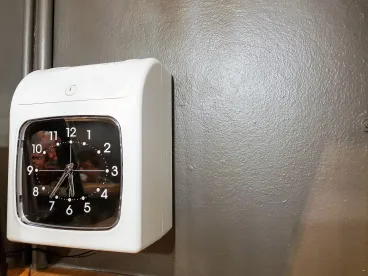A decade ago, a California Court of Appeal held that employers lawfully could round employees’ time punches if the rounding policy was neutral on its face and as applied. See See’s Candy Shops, Inc. v. Super. Ct., 210 Cal. App. 4th 889 (2012). In arriving at this conclusion, the See’s Court relied on regulations under the federal Fair Labor Standards Act (“FLSA”) and the California Division of Labor Standards Enforcement’s (“DLSE”) enforcement position, as no Labor Code provision or Wage Order addressed the issue. And, in the years since See’s, it was generally accepted that rounding was permissible, so long as the policy conformed to the standard set forth in See’s. However, things started to change last year.
In February 2021, in Donohue v. AMN Services, LLC, 11 Cal. 5th 58 (2021) (discussed here), the California Supreme Court held that rounding was not permissible with respect to meal periods. As we noted at the time, although the Donohue court did not rule that all time rounding was unlawful, it questioned whether the practice could be justified given technological advances in timekeeping and payroll.
On October 24, 2022, the Court of Appeal for the Sixth Appellate District took the next step toward dismantling rounding altogether in Camp v. Home Depot U.S.A., Inc., Case No. H049033, 2022 WL 13874360 (Cal. Ct. App. 2022). In the published opinion, the Court reversed summary judgment for an employer that had a facially neutral quarter hour rounding policy where the employer “could and did track the exact time in minutes that an employee worked each shift and [where] those records showed that [the employee] … was not paid for all the time he worked.”
Camp involved a putative class action by two non-exempt employees, Delmer Camp and Adriana Correa, who alleged that Home Depot’s rounding policy resulted in unpaid wages. Although Home Depot’s timekeeping system recorded employees’ work times to the minute, the company’s payroll system rounded each shift to the nearest quarter hour. While Home Depot’s records demonstrated that Correa had been overpaid over time, they also indicated that Camp was underpaid by 470 minutes. Nonetheless, there was evidence that employees were paid accurately or overpaid the majority of shifts, and that Home Depot’s rounding resulted in overpayment in almost half of all pay periods.
Relying on See’s, the trial court granted Home Depot summary judgment. While the Court of Appeal dismissed Correa’s appeal, it reversed summary judgment as to Camp. Relying heavily on the California Supreme Court’s decisions in Troester v. Starbucks Corp., 5 Cal. 5th 829 (2018) (discussed here) and Donohue, the Court remarked that the application of See’s should be reexamined in circumstances where employee’s work can be captured and has been captured to the minute and, as a result of a rounding system, the employee is not compensated for all time actually worked. Notably, the Court limited its ruling to the facts of the case, and explicitly stated it was not addressing whether: (1) neutral rounding was permissible due to an inability to capture the actual minutes an employee worked; or (2) whether an employer who has the ability to capture an employee’s minutes would be required to do so. However, the Court of Appeal “invited” the California Supreme Court to provide guidance on the propriety of time rounding by employers.
In light of Camp, employers with timekeeping systems that record time worked to the minute should promptly cease any rounding practices that result in potential underpayment of wages.



 />i
/>i
